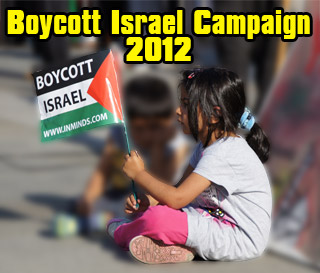
 Innovative Minds © 2014. All Rights Reserved. www.inminds.co.uk | |||||
|
[Other] Victory to the Egyptian Revolutioninminds.com The day after Mubarak had gone, thousands gathered in London's Trafalgar Square in solidarity with the Egyptian Revolution. The rally on Saturday 12th February has been organised before the fall of the dictator, by Amnesty, Stop the War Coalition and the Trade Unions in support of the on-going struggle in Egypt. Mubarak having gone, the rally became a celebration. The short video below features a young lady of Egyptian origin who eloquently summarises the feelings flowing through the hearts of the thousands filling Trafalgar Square. Following the photos we have included two articles from Tariq Ali and Ali Abunimah which provide essential insight in to the events taking place in Egypt. 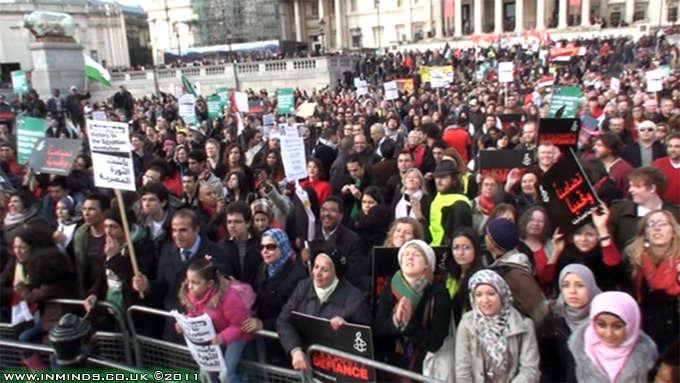 Thousands pack Trafalgar Square in solidarity 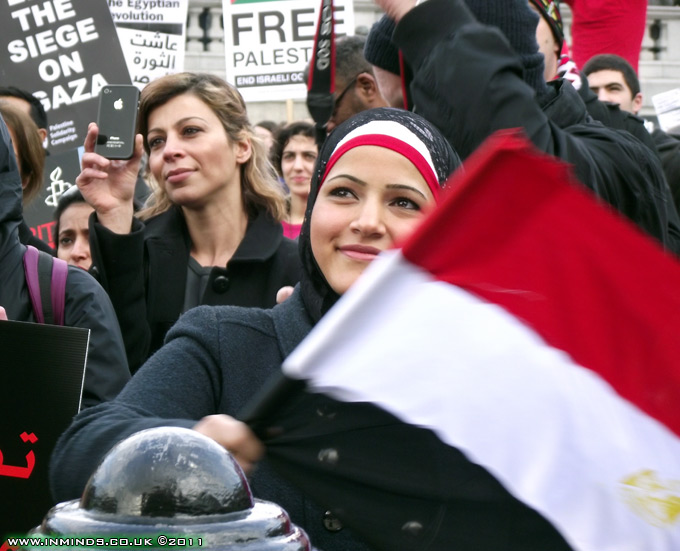 Jubilant smile 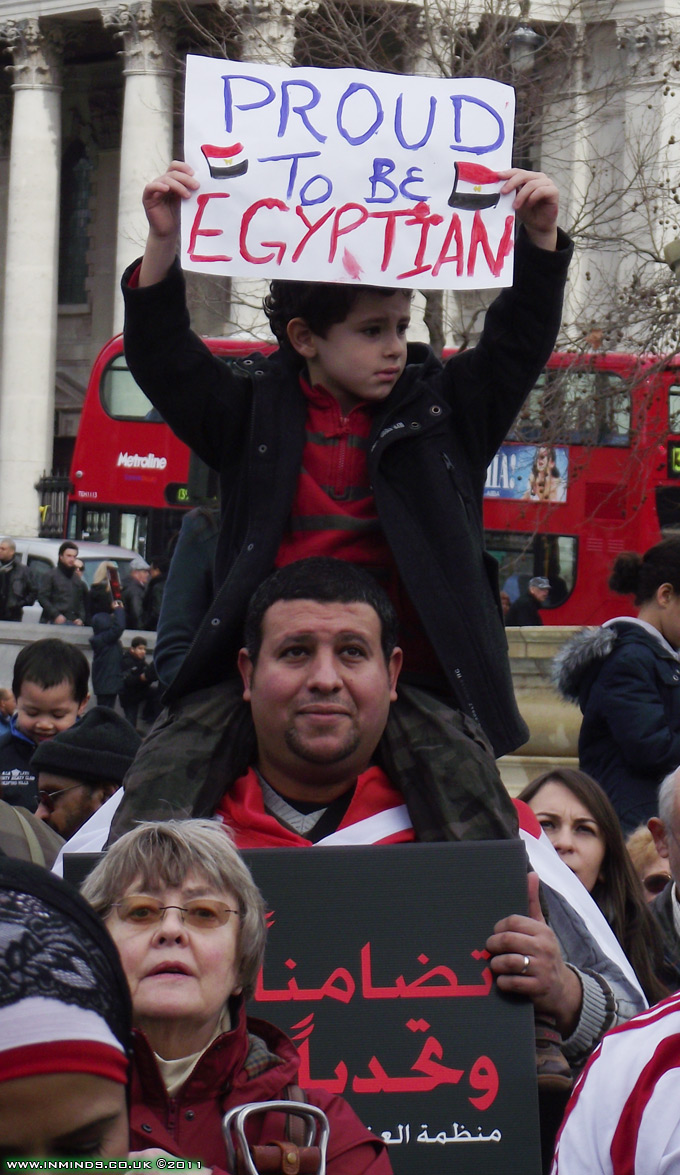 Proud to be Egyptian 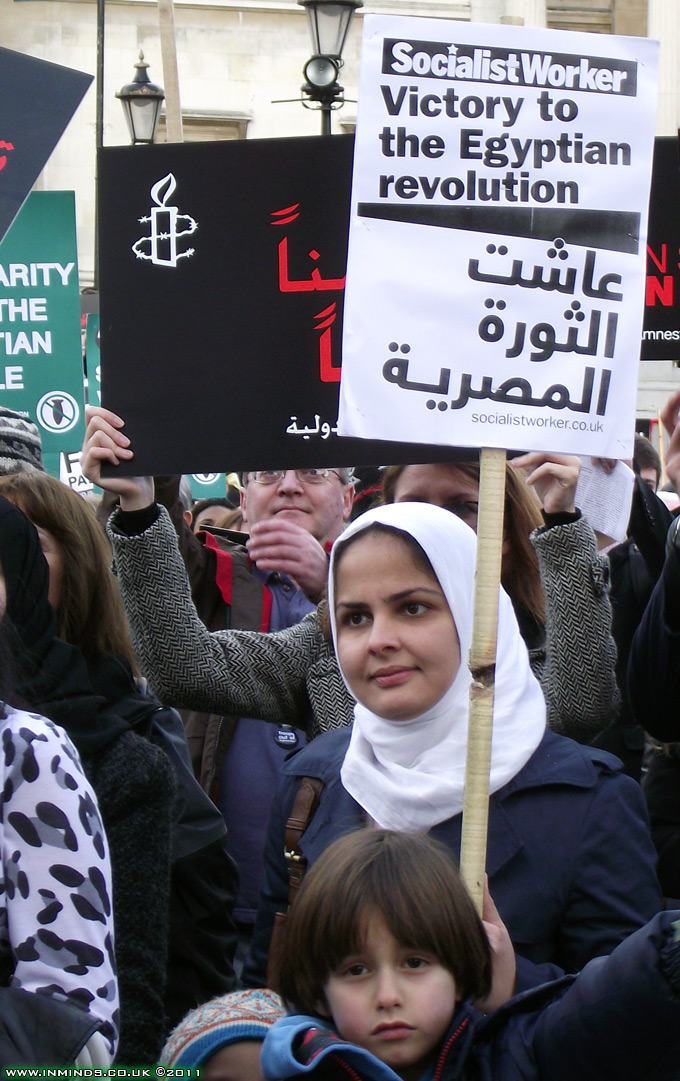 Victory to the Egyptian revolution 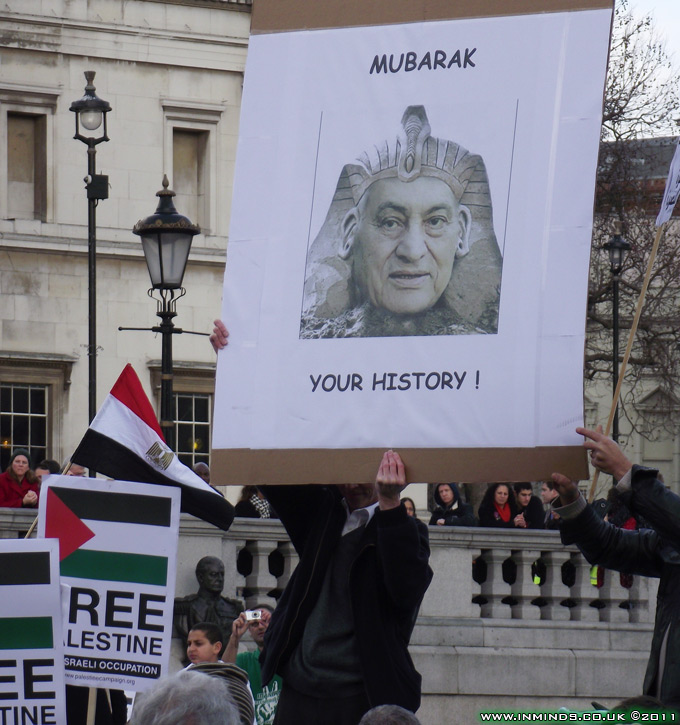 Mubarak You're history!  In solidarity, in defiance 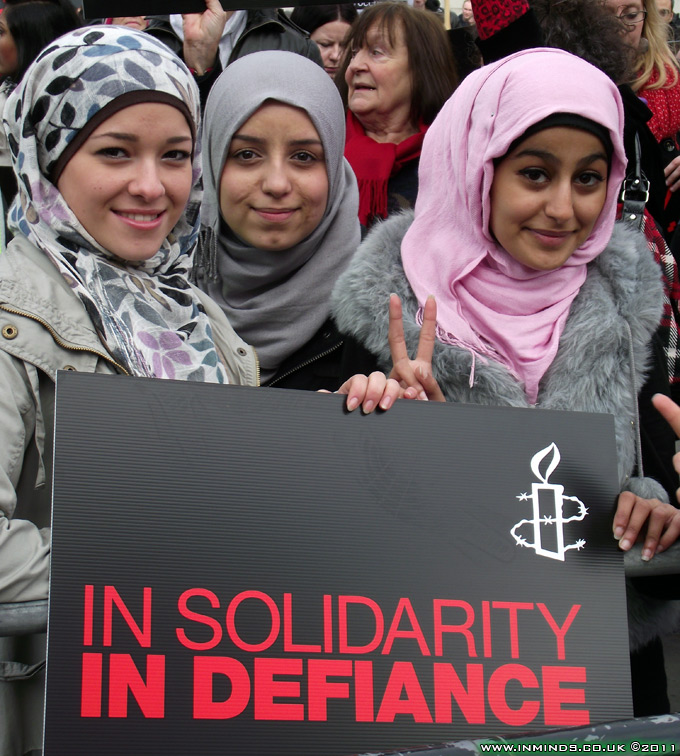 In solidarity, in defiance 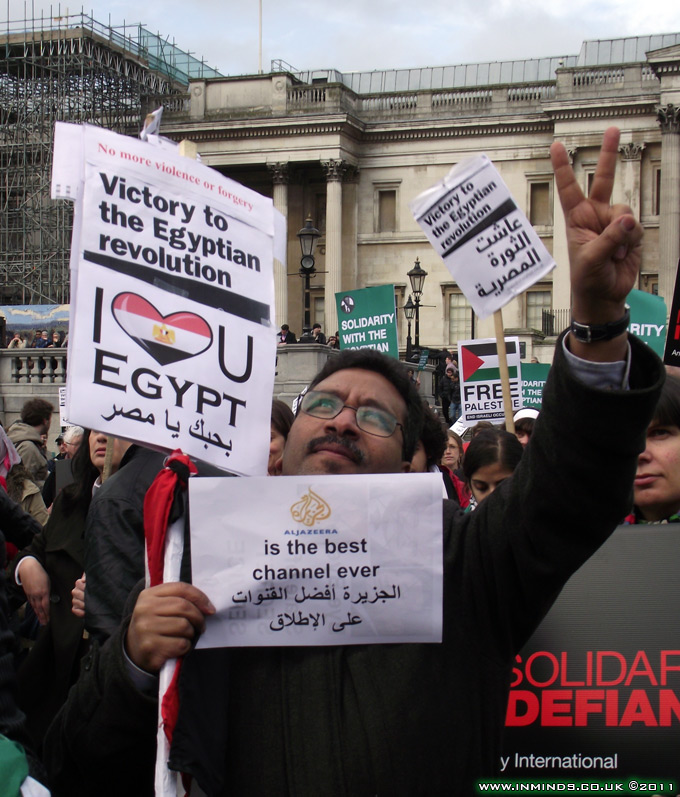 Saluting Al-Jazeera's coverage of the revolution 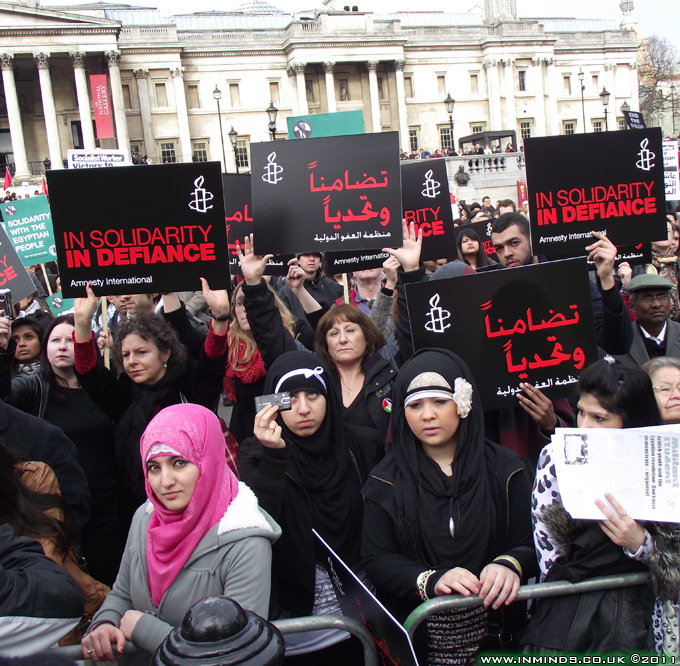 In solidarity, in defiance 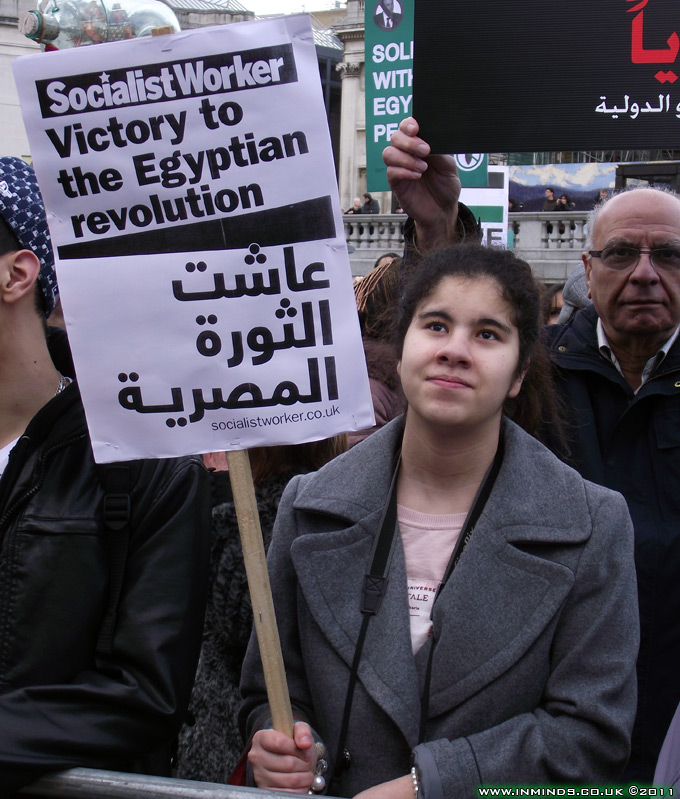 Victory to the Egyptian revolution 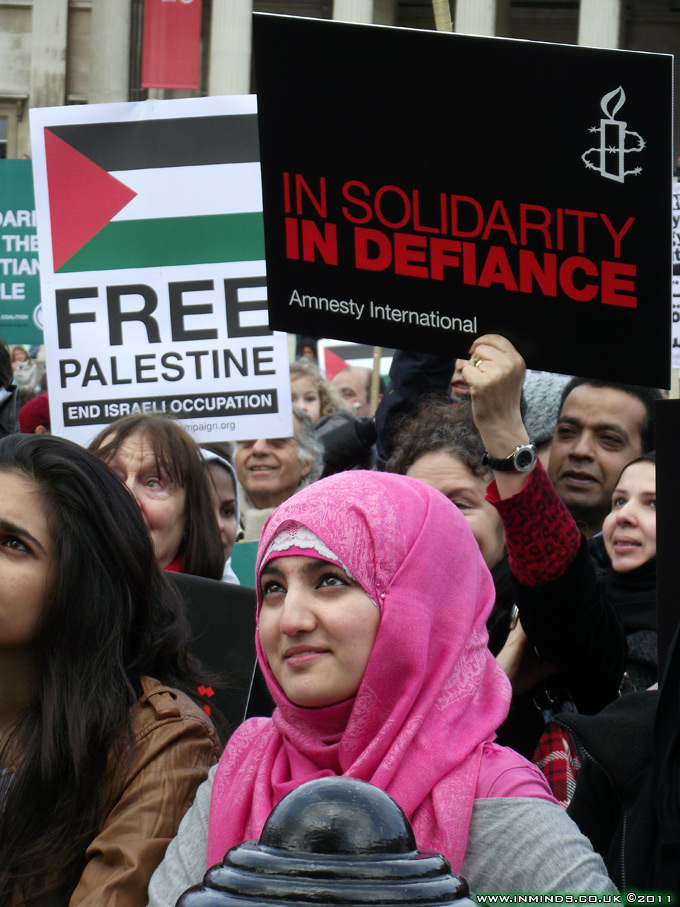 Palestine is an integral part of the Egyptian victory 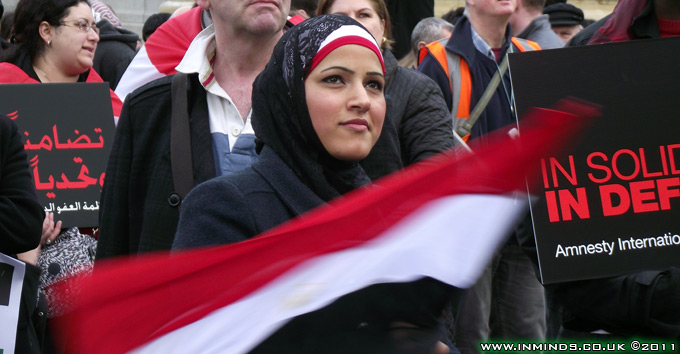 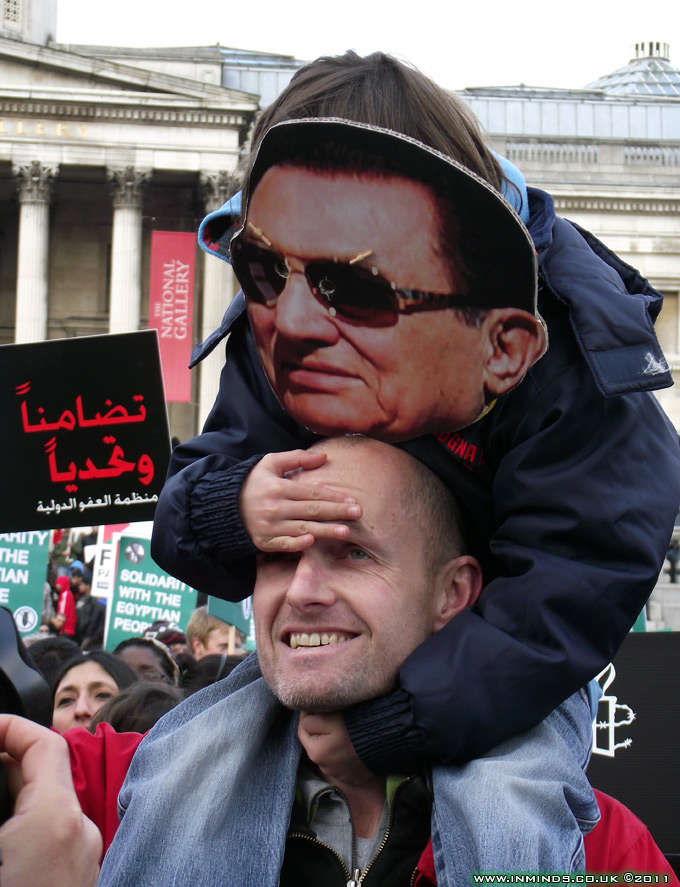 Mubarak spotted in Trafalgar Square! 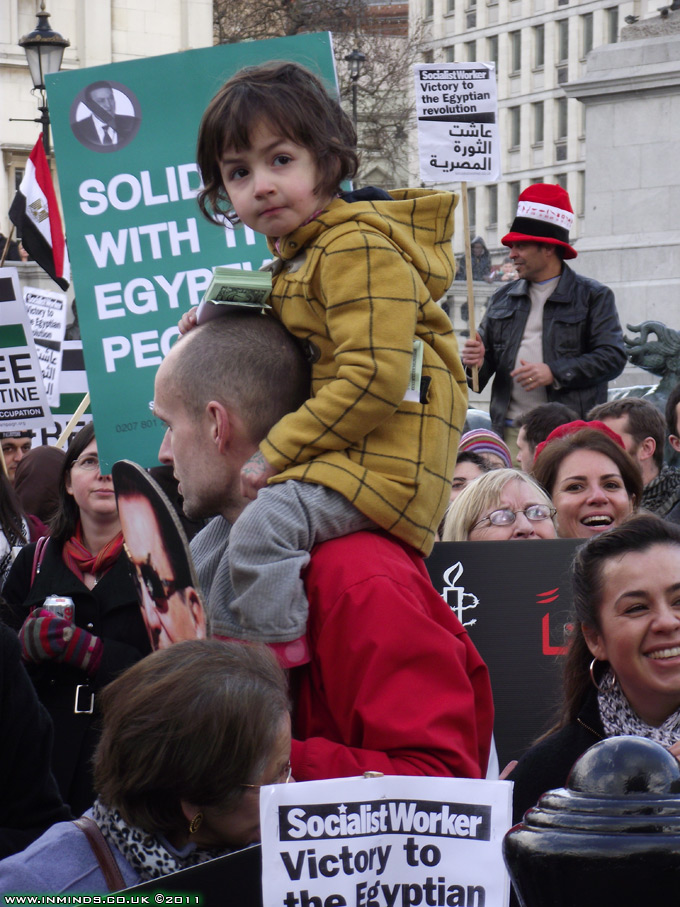 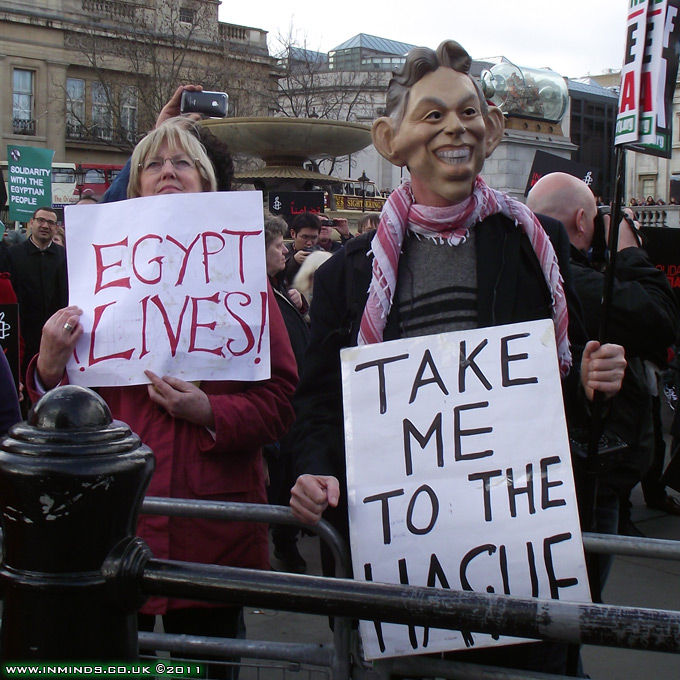 Blair - take me to the Hague 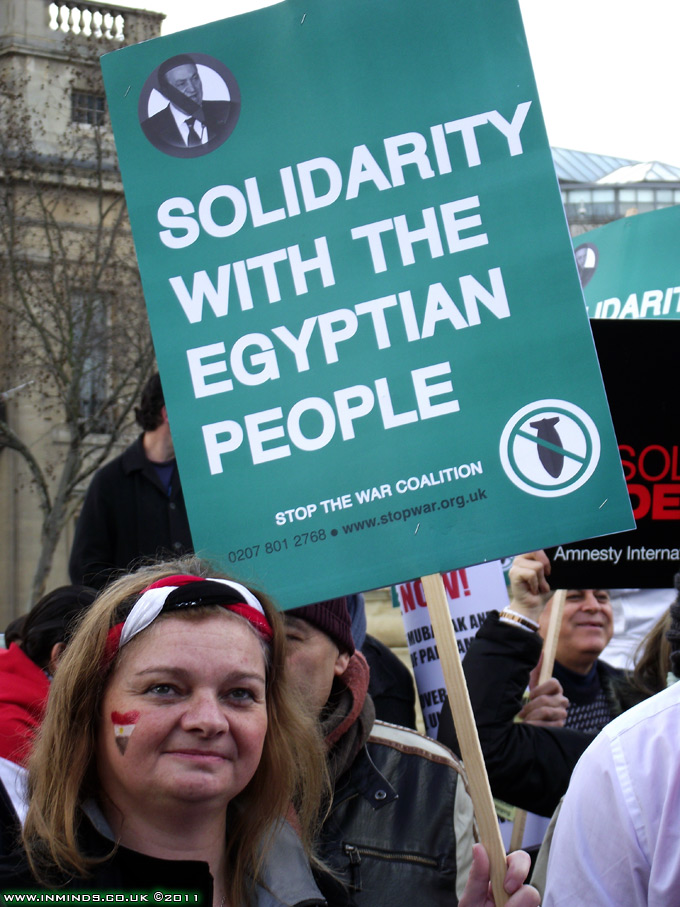 Solidarity with the Egyptian people 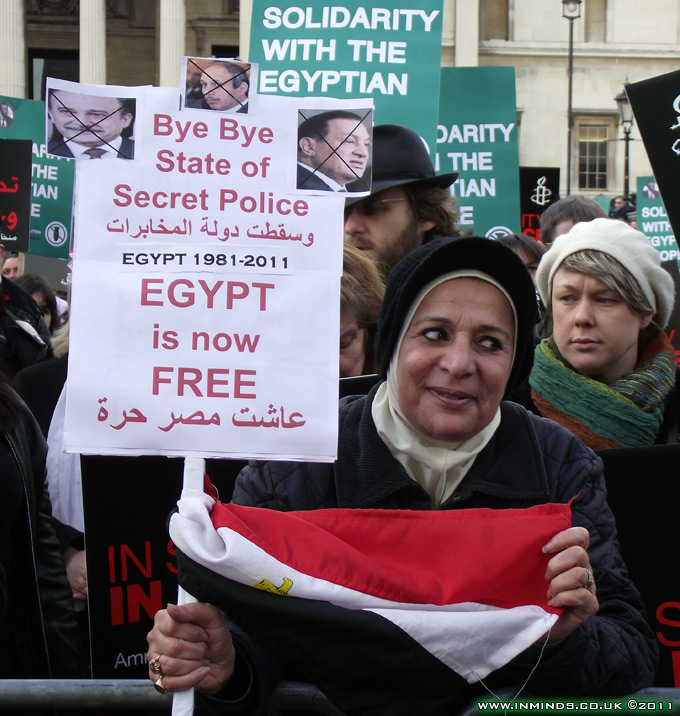 Bye Bye State of Secret Police - Egypt is now free 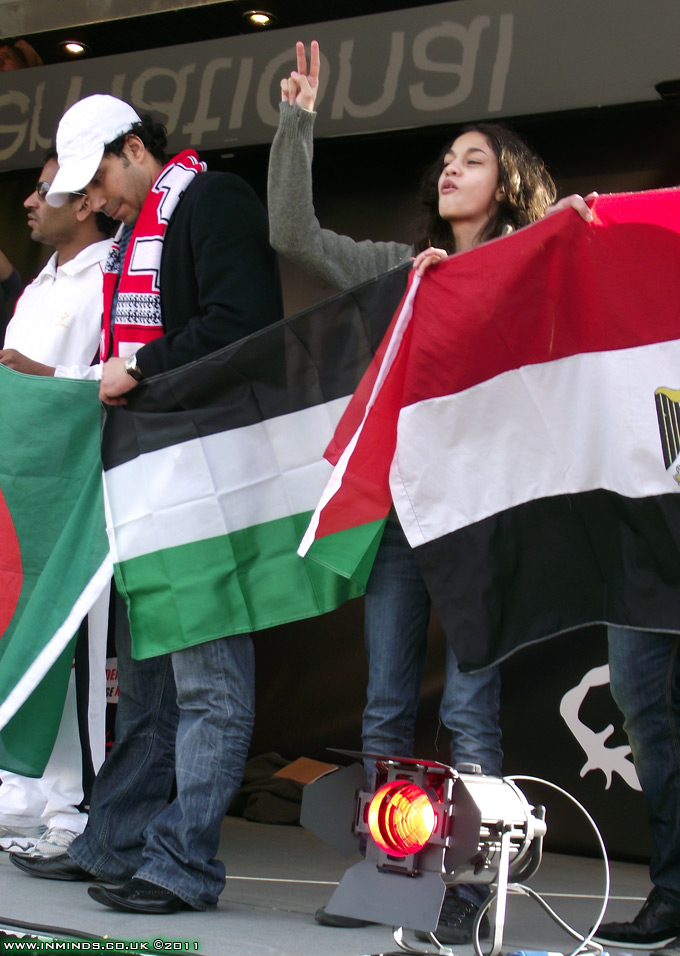 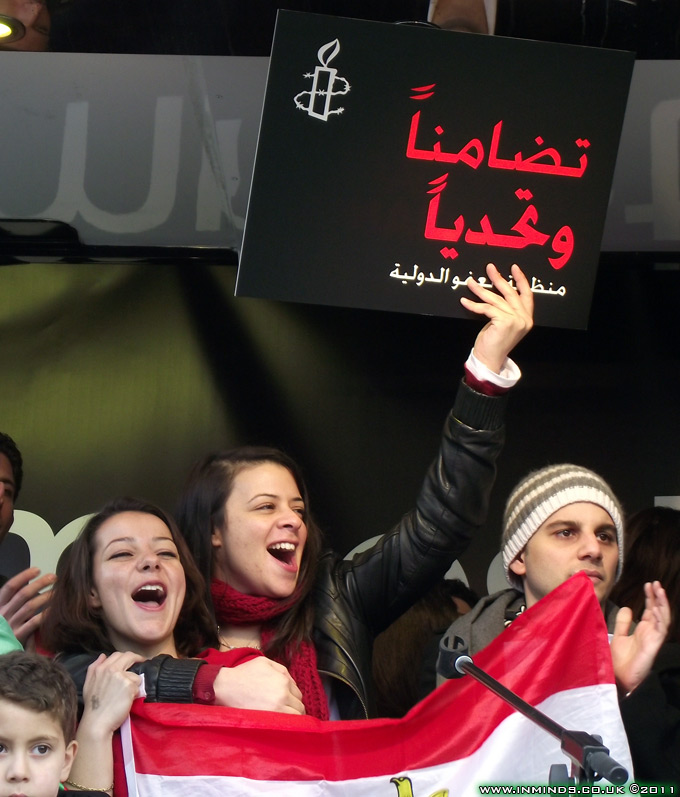 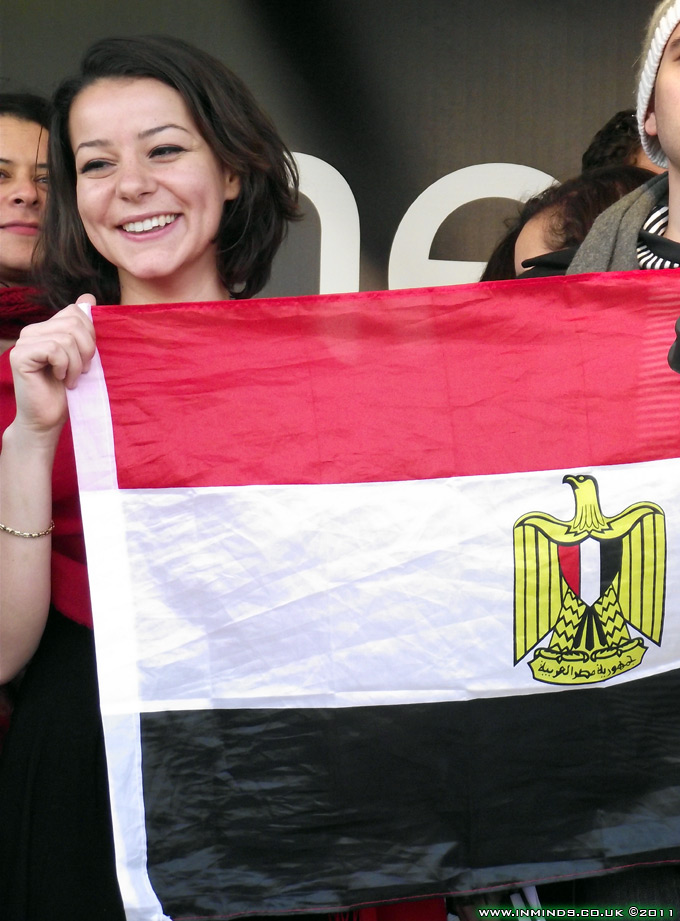 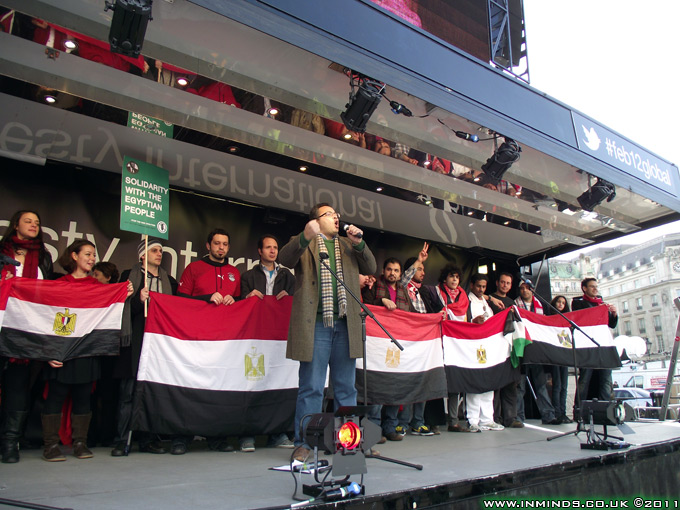 Egyptian just back from Tahrir Square 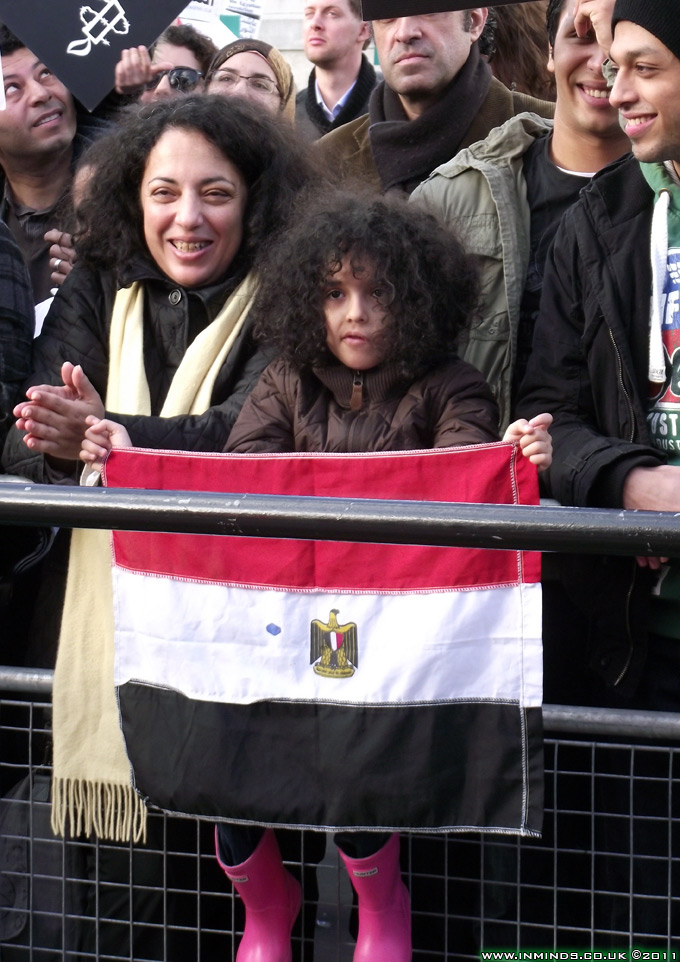 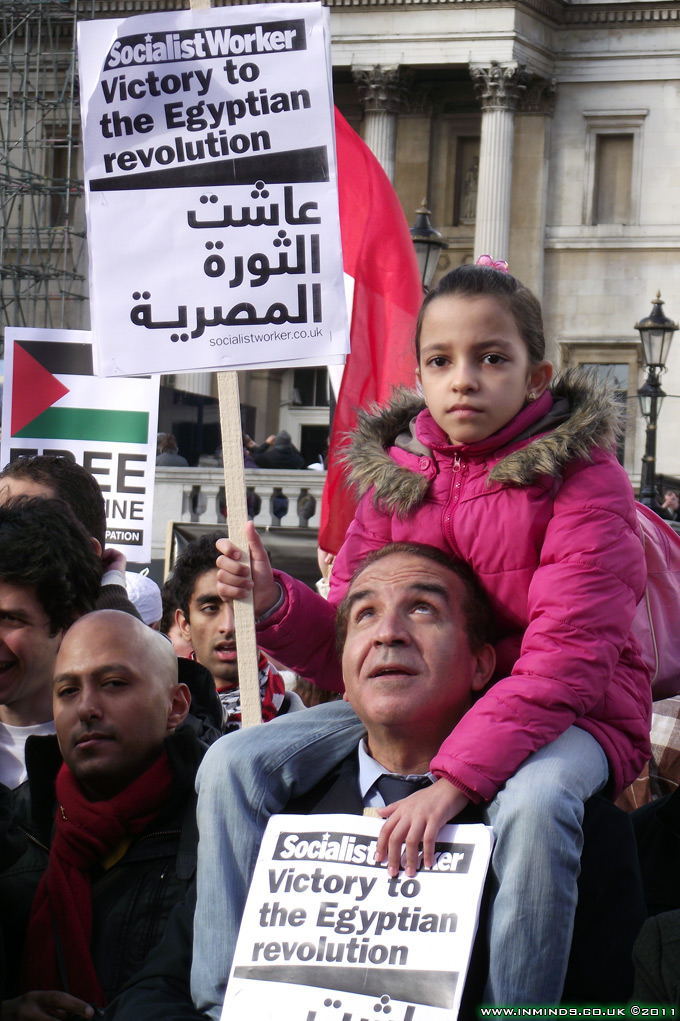 Victory to the Egyptian revolution 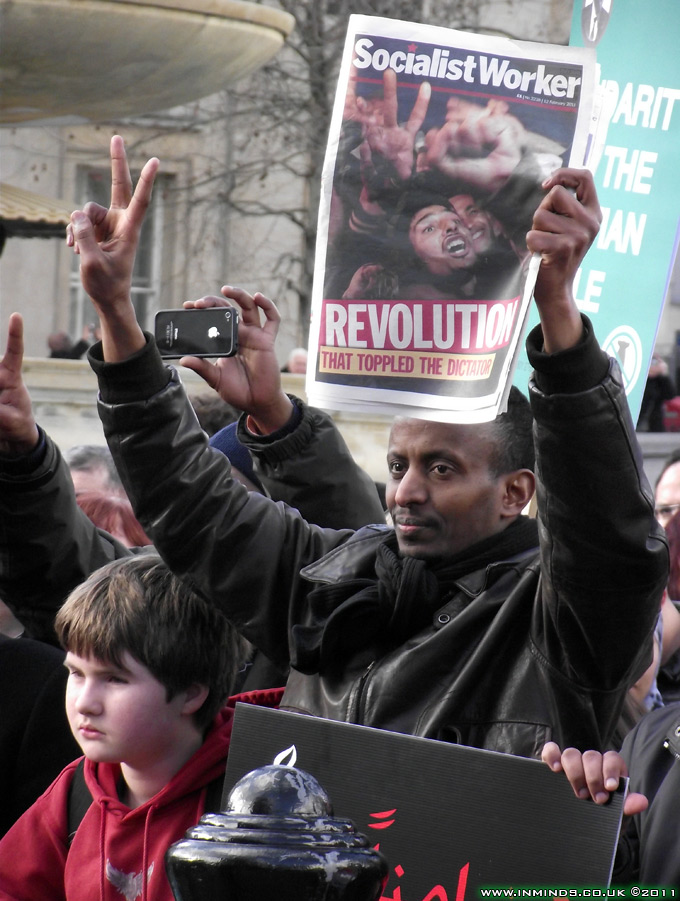 Socialist Worker front page - Revolution that toppled the dictator 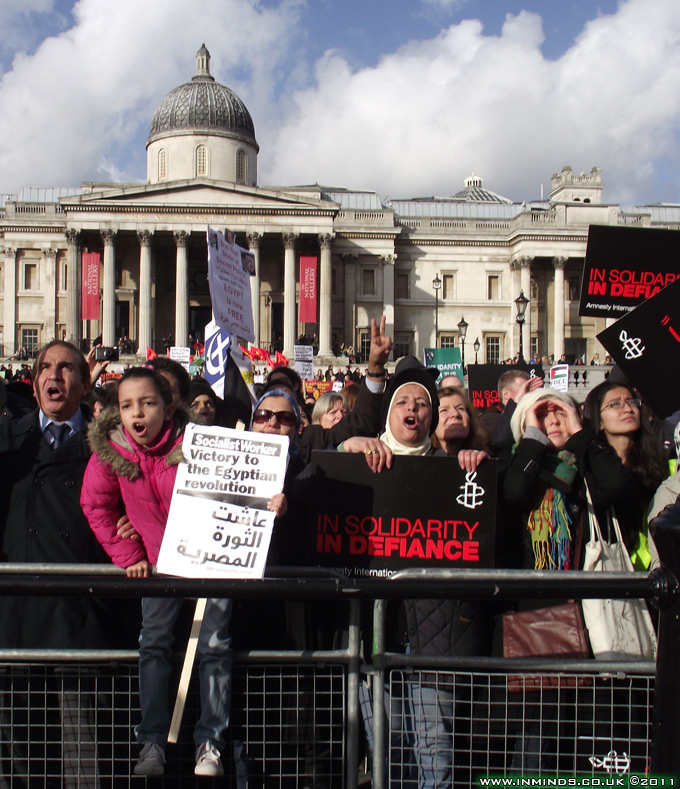 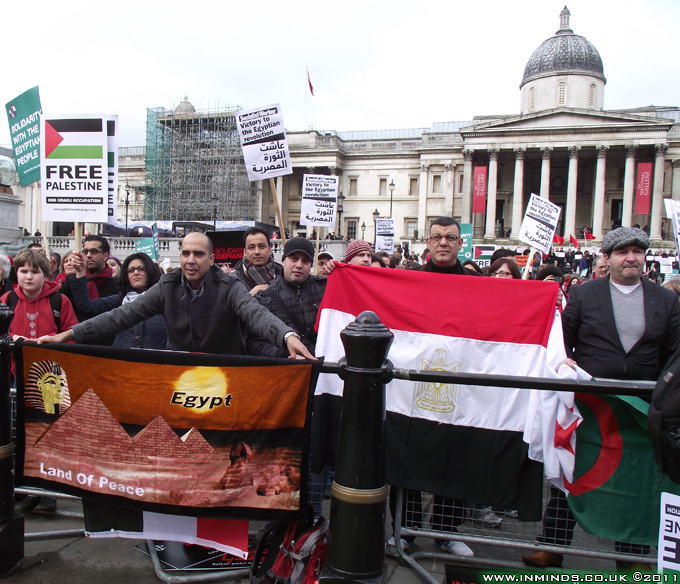 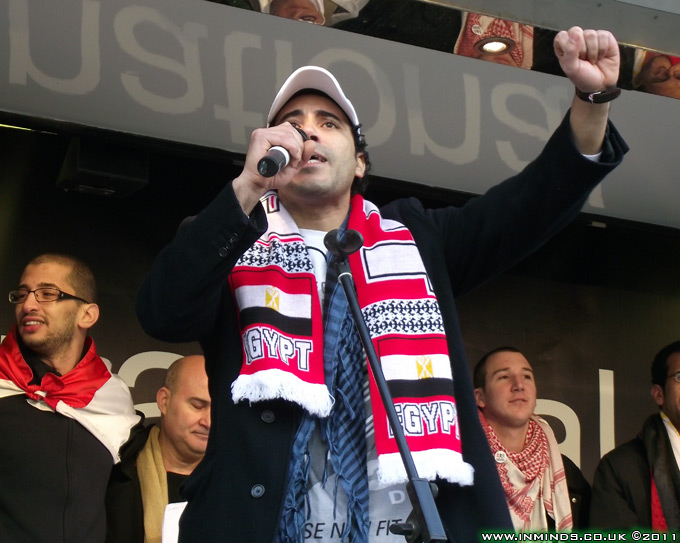 Young Egyptians lead the chanting - Thawra thawra hatta an nasr (Revolution, revolution until victory!) 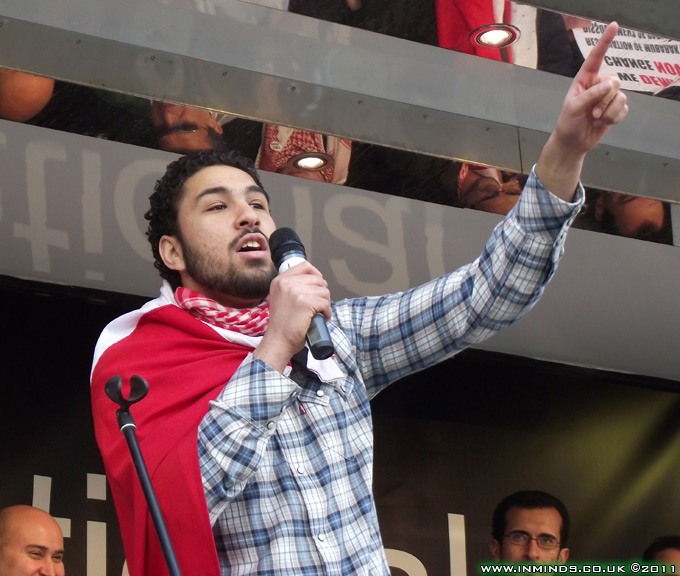 Young Egyptians lead the chanting - Thawra fi kul shwari' masr (Revolution in every street of Egypt!) 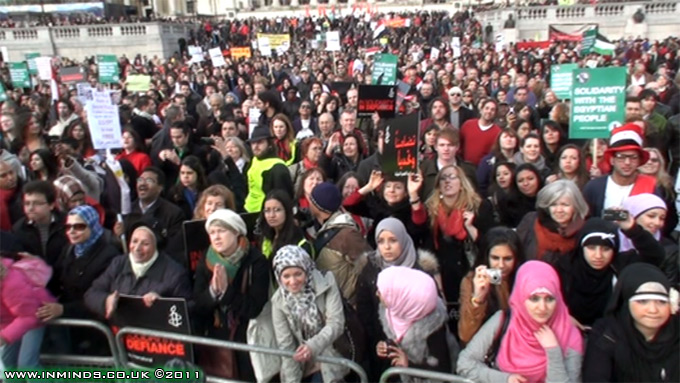 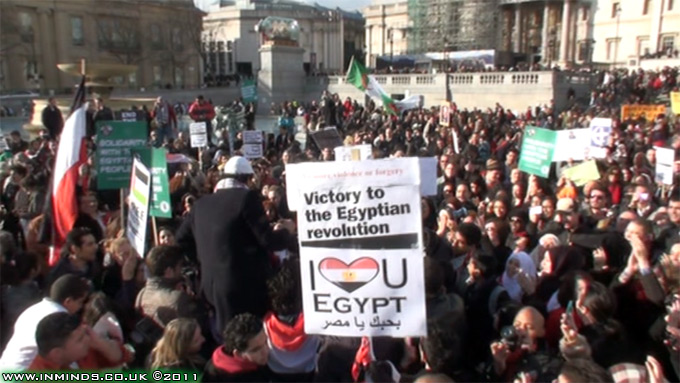 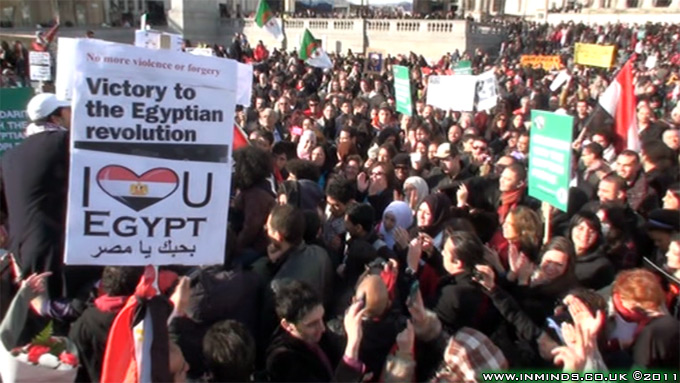 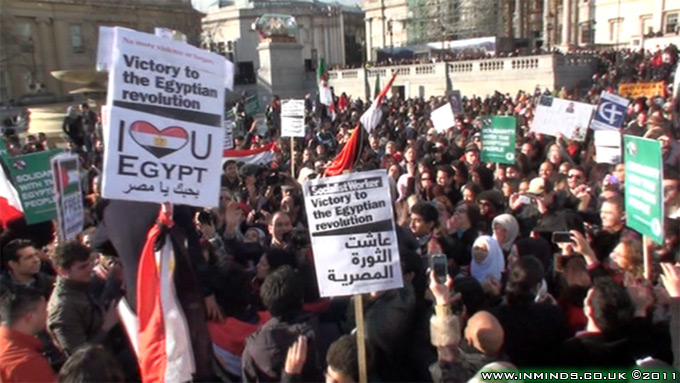
Egypt's joy as Mubarak quitsTariq Ali, The Guardian A joyous night in Cairo. What bliss to be alive, to be an Egyptian and an Arab. In Tahrir Square they're chanting, "Egypt is free" and "We won!" The removal of Mubarak alone (and getting the bulk of his $40bn loot back for the national treasury), without any other reforms, would itself be experienced in the region and in Egypt as a huge political triumph. It will set new forces into motion. A nation that has witnessed miracles of mass mobilisations and a huge rise in popular political consciousness will not be easy to crush, as Tunisia demonstrates. Arab history, despite appearances, is not static. Soon after the Israeli victory of 1967 that marked the defeat of secular Arab nationalism, one of the great Arab poets, Nizar Qabbani wrote: Arab children, Corn ears of the future, You will break our chains. Kill the opium in our heads, Kill the illusions. Arab children, Don't read about our suffocated generation, We are a hopeless case, As worthless as a water-melon rind. Don't read about us, Don't ape us, Don't accept us, Don't accept our ideas, We are a nation of crooks and jugglers. Arab children, Spring rain, Corn ears of the future, You are the generation that will overcome defeat. How happy he would have been to seen his prophecy being fulfilled. The new wave of mass opposition has happened at a time where there are no radical nationalist parties in the Arab world, and this has dictated the tactics: huge assemblies in symbolic spaces posing an immediate challenge to authority â as if to say, we are showing our strength, we don't want to test it because we neither organised for that nor are we prepared, but if you mow us down remember the world is watching.
The threat of even larger crowds next week, made it impossible for Washington to hang on to Mubarak and his cronies. The man Hillary Clinton had referred to as a loyal friend, indeed "family", was dumped. The US decided to cut its losses and authorised the military intervention.
This dependence on global public opinion is moving, but is also a sign of weakness. Had Obama and the Pentagon ordered the Egyptian army to clear the square â however high the cost â the generals would have obeyed orders, but it would have been an extremely risky operation for them, if not for Obama. It could have split the high command from ordinary soldiers and junior officers, many of whose relatives and families are demonstrating and many of whom know and feel that the masses are on the right side. That would have meant a revolutionary upheaval of a sort that neither Washington nor the Muslim Brotherhood â the party of cold calculation â desired. The show of popular strength was enough to get rid of the current dictator. He'd only go if the US decided to take him away. After much wobbling, they did. They had no other serious option left. The victory, however, belongs to the Egyptian people whose unending courage and sacrifices made all this possible. And so it ended badly for Mubarak and his old henchman. Having unleashed security thugs only a fortnight ago, Vice-President Suleiman's failure to dislodge the demonstrators from the square was one more nail in the coffin. The rising tide of the Egyptian masses with workers coming out on strike , judges demonstrating on the streets, and the threat of even larger crowds next week, made it impossible for Washington to hang on to Mubarak and his cronies. The man Hillary Clinton had referred to as a loyal friend, indeed "family", was dumped. The US decided to cut its losses and authorised the military intervention. Omar Suleiman, an old western favourite, was selected as vice-president by Washington, endorsed by the EU, to supervise an "orderly transition". Suleiman was always viewed by the people as a brutal and corrupt torturer, a man who not only gives orders, but participates in the process. A WikiLeaks document had a former US ambassador praising him for not being "squeamish". The new vice president had warned the protesting crowds last Tuesday that if they did not demobilise themselves voluntarily, the army was standing by: a coup might be the only option left. It was, but against the dictator they had backed for 30 years. It was the only way to stabilise the country. There could be no return to "normality". The age of political reason is returning to the Arab world. The people are fed up of being colonised and bullied. Meanwhile, the political temperature is rising in Jordan, Algeria and Yemen.
The revolution continues after Mubarak's fallAli Abunimah, The Electronic Intifada Yesterday evening, after it was announced that Hosni Mubarak had met the first demand of the revolution and left office, I headed toward the Egyptian embassy in Amman. The joy on the streets was something I had never experienced before.
The revolution has reawakened a sense of a common destiny for the Arab world many thought had been lost, that seemed naive when our mothers and fathers told us about it from their youth, and that Arab leaders had certainly tried to kill.
From all directions people came, pouring out of cars stuck in gridlocked traffic on Zahran Street and into the side street where the embassy sits. They were young and old and families with children. Egyptian laborers -- the unacknowledged back bone of much of the Jordanian economy -- sang, carried each other on their shoulders and played drums. Egyptian flags waved and signs were held high. The chants were as varied and lively as the crowd which grew to thousands: "Long Live Egypt!," "The people overthrew the regime!," "Who's next?," "Tomorrow Abbas!" Some people showered the crowd with sweets, as fireworks burst overhead. Everyone took pictures, recording a moment of victory they felt was made by the Egyptian people on behalf of all of us. After Tunisia, a second great pillar of oppression has been knocked down, at such great cost to hundreds who gave their lives, and many millions who saw their lives destroyed for so many years. It was a night for joy, and the celebrations continue today. After the celebrations are over, the revolution too must go on, because it will not be complete until the Egyptian people rebuild their country as they wish it to be. But standing in the streets of Amman there was no mistaking that the Egyptian revolution will have a profound impact on the whole region. Arab people everywhere now imagine themselves as Tunisians or Egyptians. And every Arab ruler imagines himself as Ben Ali or Mubarak. The revolution has reawakened a sense of a common destiny for the Arab world many thought had been lost, that seemed naive when our mothers and fathers told us about it from their youth, and that Arab leaders had certainly tried to kill. The Arab dictators, who are as dead inside as Mubarak showed himself to be in his awful televised speeches, thought their peoples' spirits were dead too. The revolutions have restored a sense of limitless possibility and a desire that change should spread from country to country.
There is no doubt that the United States will not give up its hegemony in Egypt easily, and will do all it can to frustrate any Egyptian move toward an independent regional policy, using as leverage its deep ties and enormous aid to the Egyptian military that now rules the country.
Whatever happens next, the Egyptian revolution will also have a profound effect on the regional balance of power. Undoubtedly the United States, Israel and their allies are already weaker as a result. First they lost Tunisia, and then suffered a severe setback with the collapse of the US-backed Lebanese government of Rafiq Hariri, and now Mubarak and Omar Suleiman, the closest and most enthusiastic collaborators with Israel except perhaps for Mahmoud Abbas and his cronies in Ramallah. On many minds -- especially Israeli and American ones -- has been the question of whether a new democratic Egyptian government will tear up the 1979 peace treaty with Israel. That of course, is up to the Egyptian people, although the transitional military government confirmed in its fourth statement Egypt's adherence to "all international and regional treaties." But the treaty is not really the issue. Even if democratic Egypt maintains the treaty, the treaty never required Egypt to join Israeli and American conspiracies against other Arabs. It never required Egypt to become the keystone in an American-led alliance with Israel and Saudi Arabia against an allegedly expansionist Iran. It never required Egypt to adopt and disseminate the vile "Sunni vs. Shia" sectarian rhetoric that was deliberately used to try to shore up this narrative of confrontation. It never required Egypt to participate in Israel's cruel siege of Gaza or collaborate closely with its intelligence services against Palestinians. It never required Egypt to become a world center of torture for the United States in its so-called "War on Terror." The treaty did not require Egypt to shoot dead migrants crossing Sinai from other parts of Africa just to spare Israelis from seeing black people in Tel Aviv. No treaty required or requires Egypt to carry on with these and so many more shameful policies that earned Hosni Mubarak and his regime the hatred of millions of Arabs and others far beyond Egypt's borders. There is no doubt that the United States will not give up its hegemony in Egypt easily, and will do all it can to frustrate any Egyptian move toward an independent regional policy, using as leverage its deep ties and enormous aid to the Egyptian military that now rules the country. The regional ambitions of the United States remain the main external threat to the success of Egypt's revolution.
For many years, these regimes, like Egypt, bet their security and survival on a virtually unconditional alliance with the United States.. What the revolutions demonstrate to all Arab regimes is that the United States cannot rescue you in the end.
Whatever break or continuity there is with Egypt's past policies, the calculations have changed for remaining members of the so-called "alliance of moderates," particularly Saudi Arabia -- which allegedly offered to prop Mubarak up financially if the US withdrew its aid -- Jordan and the Palestinian Authority. For many years, these regimes, like Egypt, bet their security and survival on a virtually unconditional alliance with the United States: they abandoned all dignified, independent and principled positions and adopted America's hegemonic aspirations as their own, in exchange for assistance, and what they hoped was a guarantee that the US would come to their rescue if they got in trouble. What the revolutions demonstrate to all Arab regimes is that the United States cannot rescue you in the end. No amount of "security assistance" (training, tear gas, weapons), financial aid, or intelligence cooperation from the United States or France can withstand a population that has decided it has had enough. These regimes' room for maneuver has shrunk even if the sorts of uprisings seen in Egypt and Tunisia are not imminent elsewhere. After the revolutions, people's expectations have been raised and their tolerance for the old ways diminished. Whether things go on as they have for a few weeks, a few months, or even a few more years in this or that country, the pressures and demands for change will be irresistible. The remaining Arab regimes must now ask not if change will happen but how. Will regimes that relied for so long on repression, fear and the docility of their people wait for revolution, or will they give up unearned power and undertake real democratization willingly, speedily and honestly? This will require not just a dramatic change of internal policies which regimes may or may not be capable of making voluntarily, but also a deep reexamination of external alliances and commitments that have primarily served Israel, the United States and the regimes at the expense of their people.
In the West Bank, the Palestinian Authority (PA) of Mahmoud Abbas is in a more precarious situation than ever. Its loss of legitimacy is so thorough -- especially after the revelations in the Palestine Papers -- that it exists only thanks to the protection of the Israeli occupation..
Jordan is now a prime case where such a reexamination is urgently due. Regardless of whether or not (and I think almost certainly not) the newly-appointed cabinet will be able to meet public expectations for democratization, fighting corruption, and ending the worst neo-liberal policies that have put so many of the country's resources and companies in unaccountable private hands, the country's foreign policy must undergo a full review. This includes the overly dependent relationship on the United States, relations with Israel, participation in the sham "peace process," the training of the security forces used by Mahmoud Abbas in the West Bank against other Palestinians, and the deeply unpopular involvement in the NATO war and occupation in Afghanistan. Up until now, these matters have all been decided without any regard to public opinion. And in the West Bank, the Palestinian Authority (PA) of Mahmoud Abbas is in a more precarious situation than ever. Its loss of legitimacy is so thorough -- especially after the revelations in the Palestine Papers -- that it exists only thanks to the protection of the Israeli occupation, US and EU training of its repressive security forces, and massive EU funding to pay the salaries of its bloated bureaucracy. The PA's leaders are as dead to the just cause and aspirations for liberation of the Palestinian people for which so much has been sacrificed, as Mubarak was to the Egyptian people's rights and hopes. No wonder the PA relies more and more on the thuggery and police state tactics so reminiscent of Mubarak and Ben Ali.
Like the people power, against which the Egyptian and Tunisian police states were powerless in the end, Palestinians and their allies (particularly those supporting the boycott, divestment and sanctions movement) have the power to transform reality within the next few years.
The revolutions in the Arab have lifted our horizons. More people can now see that the liberation of Palestine from Zionist colonialism and US- and EU-funded oppression, to make it a safe, humane place for all who live in it to exist in equality, is not just a utopian slogan but is in our hands if we struggle for it and stick to our principles. Like the people power, against which the Egyptian and Tunisian police states were powerless in the end, Palestinians and their allies (particularly those supporting the boycott, divestment and sanctions movement) have the power to transform reality within the next few years. In whatever form the revolution continues, the people are saying to their rulers: our countries, our futures, don't belong to you any more. They belong to us. Ali Abunimah is co-founder of The Electronic Intifada, author of One Country: A Bold Proposal to End the Israeli-Palestinian Impasse and is a contributor to The Goldstone Report: The Legacy of the Landmark Investigation of the Gaza Conflict (Nation Books). Source: http://electronicintifada.net/v2/article11799.shtml Related ArticlesAlso Of InterestPage URL: http://www.inminds.co.uk/article.php?id=10499
|
|
Support Us
If you agree with our work then please support us.Campaigns INMINDS Facebook Live Feed Latest Video's
INMINDS Twitter Feed Tweets by @InmindsComFeatured Video's
You need Flash player 8+ and JavaScript enabled to view this video.
[all videos (over 200)..] Featured MP3 Podcast  During the holy month of Ramadan, as we move towards the Eid, I was going around Muslim shops in Tower Hamlets and elsewhere telling them that although they had collection boxes for the Mosque, although they had religious imagery in their shops, although they were selling dates to the faithful people to break their fast - the dates were made in Israel! They were stained with the blood of the Palestinian people! And Muslim shop keepers were selling them! Respect MP for Tower Hamlets Respect Youth Tower Hamlets, Feb 2008 [21min / 11Mb] [all podcasts..] Newsletter Feedback |
 |
 |






















